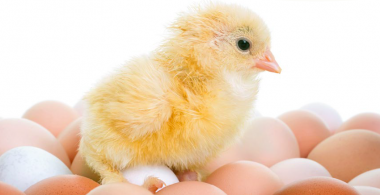
Available in other languages:
Content available at:
Español (Spanish)
Biosecurity, by definition, is a set of procedures that are carried out to limit the transmission of certain infectious pathogens to a vulnerable population. However, it is much more than that. Biosecurity is an attitude, a way of assessing potential risks and reacting to them. And the right attitude coupled with the right procedures will protect your hatchery against biosecurity threats. By Petersime’s team of incubation specialists.

DEVELOP A BIOSECURITY APPROACH FOCUSED ON THE INCUBATION PLANT
Successful hatchery operations start with biosecurity. There are procedures and protocols that must be followed. But in reality, biosecurity is much more than that. It is an attitude, not just a series of actions.
Promoting a culture of biosecurity is important for long-term success. Every hatchery employee must understand why solid biosecurity procedures are crucial to the success of the hatchery. When hatchery employees know the importance of biosecurity, they are likely to become more involved and wonder what specific steps they can take. The recent and widespread COVID-19 pandemic has helped us better understand this: what matters is the determination to do the right thing to protect people, animals, etc.
Subscribe now to the poultry technical magazine
AUTHORS

Layer Longevity Starts at Rearing
H&N Technical Team
The Strategy for a Proper Infectious Bronchitis Control
Ceva Technical Team
Elevate Hatchery Performance with Petersime’s New Data-Driven Incubation Support Service
Petersime Technical Team
Maize and Soybean Meal Demand and Supply Situation in Indian Poultry Industry
Ricky Thaper
Production of Formed Injected Smoked Chicken Ham
Leonardo Ortiz Escoto
Antimicrobial Resistance in the Poultry Food Chain and Novel Strategies of Bacterial Control
Edgar O. Oviedo-Rondón
GREG TYLER INTERVIEW
Greg Tyler
Insights from the Inaugural US-RSPE Framework Report
Elena Myhre
Newcastle Disease: Knowing the Virus Better to Make the Best Control Decisions. Part II
Eliana Icochea D’Arrigo
Avian Pathogenic E. coli (APEC): Serotypes and Virulence
Cecilia Rosario Cortés
The Importance of Staff Training on Animal Welfare Issues in Poultry Industry
M. Verónica Jiménez Grez
Rodent Control is a Key Factor in Poultry Biosecurity and Sustainability
Edgar O. Oviedo-Rondón